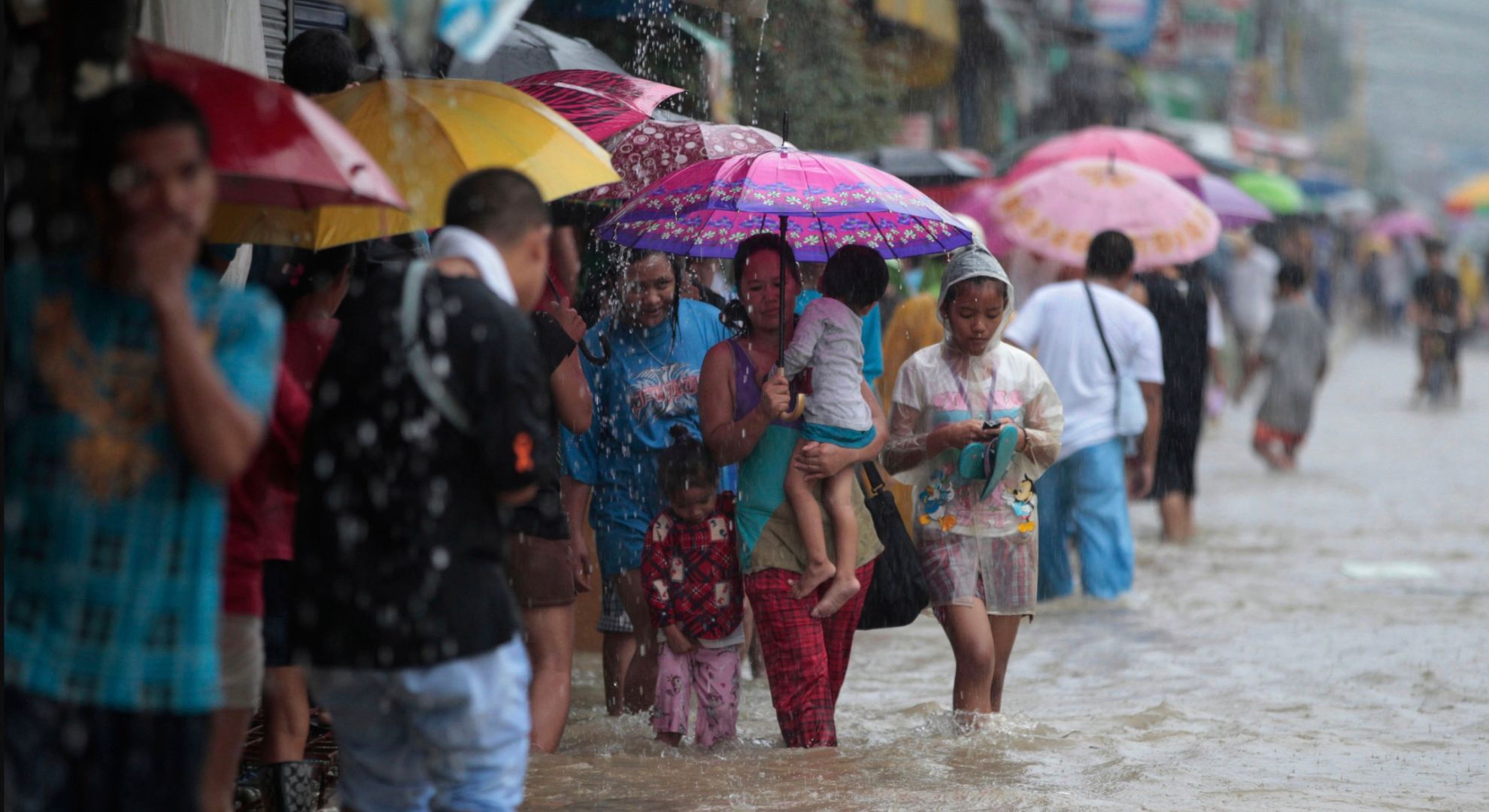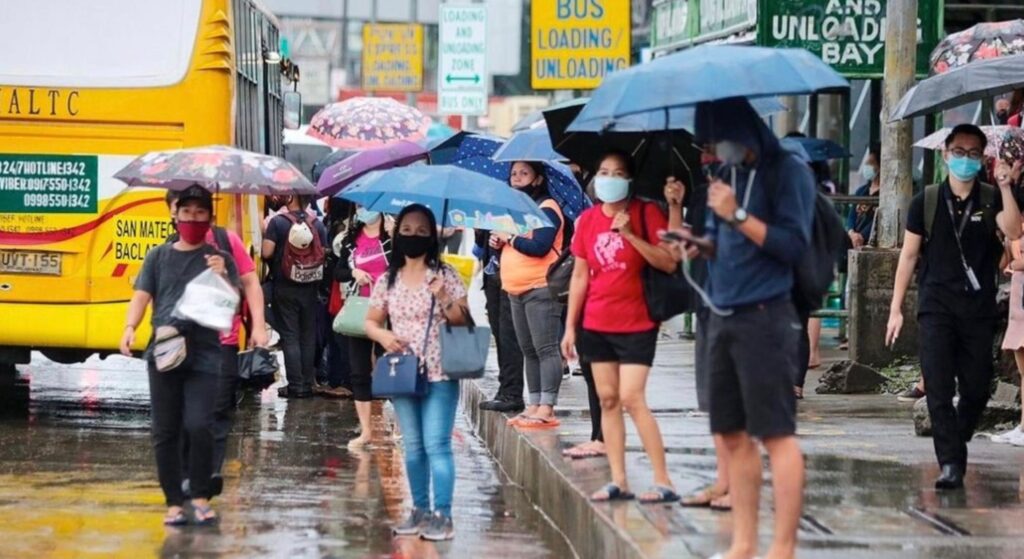“I love the rain.”
That sentence riles up so many people on Filipino Twitter (…or X…) every time someone posts it at a time when the Philippines is experiencing the nth number of typhoons for the year.
Literally, no typhoon season comes and goes in the PH without this staple and always heated debate topic turning up on our Twitter feeds. It’s a well-known fact that the Philippines is often struck by typhoons, leaving many Filipinos homeless and their livelihoods destroyed..
Of course, everyone knows how this news can affect so many of us in different ways—some would empathize with those greatly affected by the typhoon and urge people to do the same, others would prefer to stay silent and do what they can without being vocal about it, and others would pray for this natural disaster to pass by quickly.
At the same time, other responses to these natural disasters can come off as selfish, ignorant, or reeking of privilege. This is where the debate around the “I love the rain” statements comes in. Is the hate surrounding this phrase actually valid and should we stop saying it in public?
“I love the rain.”
What’s there to love about the rain? Is it the vibe and ambiance that it brings? The pitter-patter sound of raindrops falling above? The cold feeling that allows our minds to drift to the fantasy of being held by someone? The cold air that lets us crave comforting food like lugaw, ramen, or sinigang? Or just the rain in general?
For most people, these are some of the most common reasons why they love the rain. It’s a valid, wholesome, and comfortable feeling, to just lay around while listening to the sound of raindrops, eating a bowl of whatever you’re craving at the time, and being with someone who you can be vulnerable with while the rain brings in the feeling of ease and tranquility.
That is…if you are in a position of actual comfort and in a state in life where you’re allowed to feel that way.
The whole narrative changes once you’re on the other side of the coin—where you’ve experienced trauma with past typhoons, your house always getting flooded inside, getting stranded in places for an ungodly amount of time because of the lack of proper transportation or how expensive it is, getting soaked inside and out because of how strong the rains are, strangers from different parts of the country getting their whole lives uprooted because of the rain,
And the list goes on.
If you were in this position, could you still say that you love the rain? Of course not. It’ll be stupid to even dare to say it. How can you love the rain when it’s given you so much tragedy in life?
It also makes you think, how can others love the rain when it’s given so much destruction to so many people? How can they find something good from something that’s caused so much pain and trauma to others? Should we hate those kinds of people for being so insensitive and so out of touch with the realities of others?
How can people be so blind to the plight of others just because their situation is much better and ideal?
Thus, this brings us to a question that always racks our minds every time this debate comes up on social media: is it wrong to say that we love the rain on social media? Should it warrant the “cancel” card immediately when someone says it?
There’s a lot to unpack from this, but let’s begin with saying this: stop generalizing people that say “I love the rain” for being snobbish, insensitive, and out of touch. You can’t just conclude someone’s actual character from just a simple sentence that you see on your Twitter feed or on social media in general.
Heck, you probably don’t even know the person enough to draw that conclusion almost immediately. People on the Internet, as we may all have noticed in one way or another, are too judgmental and condescending for no reason. These people nitpick every single thing that others say on the Internet just to fit their “see, they’re problematic, cancel them” narrative.
The sentence itself is not even supposed to be that deep— people can just say they love the rain just because they want to. Think of it this way: remember how you would read one book by one specific author, and you’d have to analyze one sentence or one line from the book and elaborate on it. Yeah, sometimes it’s like that, and it can be overreaching.
But, at the same time, another thing to unpack from this issue, is that you can’t really blame these people for calling out those that post “I love the rain” in times when people are actually dying and experiencing hardships from the rain. They’ve also been through it and may have been thrust into situations that were not so ideal.
So, where do we draw the line for this? And to quote this one Filipino Twitter OP, “Is it politically incorrect and insensitive to say “I love the rain”?”
This is our take: No, it’s not politically incorrect to say that you love the rain, just as long as you understand that there are people who cannot say the same and that their feelings are totally valid, and to choose the right time to say it (a.k.a. where there are no people dying or going through floods and livelihoods getting wrecked).
At the same time, people should stop guilt-tripping others to empathize with people they don’t even know, and you can’t blame them for this either. You can’t expect people to empathize with others unless they too have also experienced a degree of what they go through on a regular basis. You may say that this is an out-of-touch perspective, but really.
Let us ask you a question, if you experience a sudden inconvenience, who would you think of first—other people who go through the same thing, or yourself at that moment? Wouldn’t the knee-jerk reaction be to think of yourself before everyone else, and isn’t that a human reaction too?
Stop forcing the “Parasite by Bong Joon-ho” movie plot down people’s throats, others may not have watched it yet, but we know that exact scene people are talking about every time the rainy season comes.
We get the message, but shouldn’t we stop this mob culture against such a simple sentence in the English language?
Other POP! stories that you might like:
AlDub nation on Arjo-Maine wedding: ‘That’s Maine Mendoza’s clone’
The Philippine eagle on the new P1,000 bill exists in real life, in case you didn’t know that yet
Fil-Am actress Eva Noblezada to play Daisy in ‘The Great Gatsby’ musical
Neurodiversity initiative ‘The Misfits Camp’ sheds light on what it means to be different




